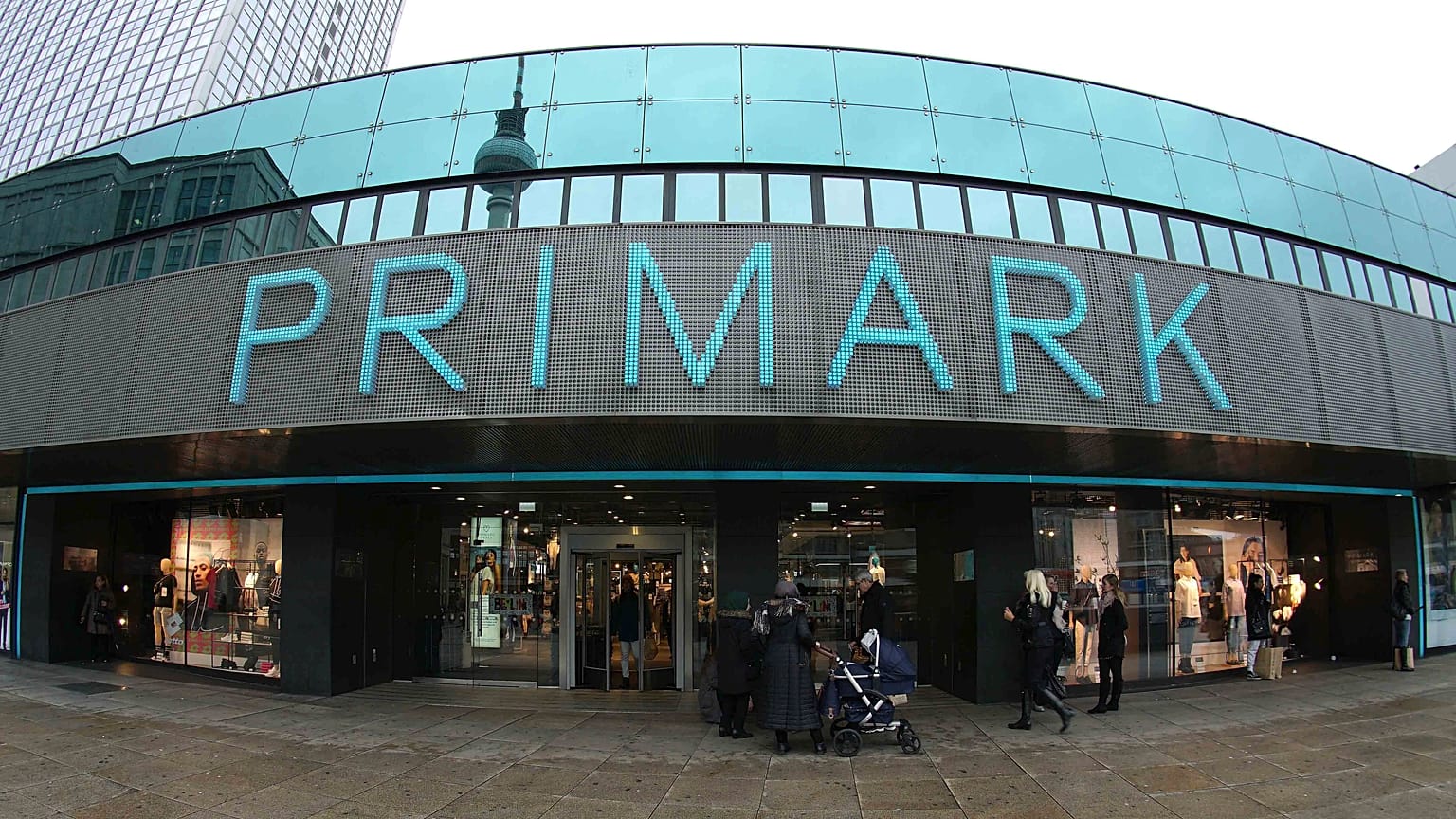Fast-fashion giant Primark has announced it will be completely sustainable by 2030. But low prices are driving overconsumption.
Fast-fashion giant Primark has pledged that all its clothes will be made from recycled or "more sustainably sourced materials" by 2030.
Currently, only a quarter of the brand's clothes fill this criteria, so the company says it will begin the transition with all "entry price point t-shirts" - which will be made with sustainably sourced cotton within the next year.
Primark also claims it will alter the design process for its products, ensuring that they are both more durable and able to be recycled.
The company is working with UK-based charity WRAP (which focuses on the circular economy within fashion) to help define new industry guidelines on durability.
"Our ambition is to offer customers the affordable prices they know and love us for, but with products that are made in a way that is better for the planet and the people who make them," says Primark CEO Paul Marchant.
"We know that’s what our customers, and our colleagues, want and expect from us.
"We don’t have all the answers and we know we can’t do it alone. We’re committed to work in partnership with the industry to drive real change at scale.”
However, some argue that fast fashion is fundamentally incapable of being sustainable. Journalist Frankie Leach argues for Euronews Green that "exploitation and sweatshops are at the core of fast fashion."
Others highlight how the word 'sustainable' is vague enough that it allows brands to effectively greenwash their harmful actions, without making any meaningful change.
Affordability versus overconsumption
Last week we published a piece about another fast-fashion giant, Shein. The article looked at how the phenomenon of 'hauls' on social media (where content creators buy vast quantities of clothes to generate videos) are damaging the planet.
The article caused a stir after it trended on Twitter, with hundreds of replies and messages - many making the same, very valid point:
How can you shop sustainably on a low income?
This is something people have been debating for years. Typically, truly sustainable brands have higher price points - largely because they ensure their workers are fairly paid and their materials are responsibly sourced.
Mathematically, it isn't possible to sell a t-shirt for €1.50 and ensure the worker who made it is being paid fairly. But, as many of you asked on Twitter, there must be a middle-ground between a €100 ethically made top and a €1.50 top that relies on worker exploitation.
Primark is certainly looking to fill that gap.
“We believe that sustainability shouldn’t be priced at a premium that only a minority can afford," adds Marchant.
"Because of who we are, we believe we have the opportunity to make more sustainable fashion choices affordable to all.”
The company says it is expanding its Sustainable Cotton Programme, while working in partnership with ACT - an international initiative to ensure liveable wages in the garment industry - "to improve the lives of people who make its clothes by pursuing a living wage for workers in its supply chain."
If Primark can genuinely manage to make its products sustainable and pay its workers fairly - this will certainly go a long way towards making sustainable fashion affordable and accessible.
However, there's still a dichotomy that needs solving.
But should we be making new clothes in the first place?
Even if an item of clothing is made in the greenest way possible, with everyone involved in its manufacture fairly compensated - it is still not sustainable if it isn't needed.
Sustainability is also about our consumption levels. If we buy the greenest, most ethical item of clothing in the world - if we don't actually need it, it's not sustainable.
"The most eco-friendly clothes are the ones already in your closet," Rose Marcario, former president and CEO of Patagonia, says.
"As individual consumers, the single best thing we can do for the planet is to keep our stuff in use longer.
"This simple act of extending the life of our garments through proper care and repair reduces the need to buy more over time - thereby avoiding the CO2 emissions, waste output, and water usage required to build it."
When clothes are cheaper, we think less about whether or not to buy them. Low prices fuel overconsumption - especially when we see the products as being an 'ethical' choice.
Sustainable clothing should be affordable, but in order to properly address fashion's role in the climate crisis, we all need to fundamentally rethink how much we buy.


















